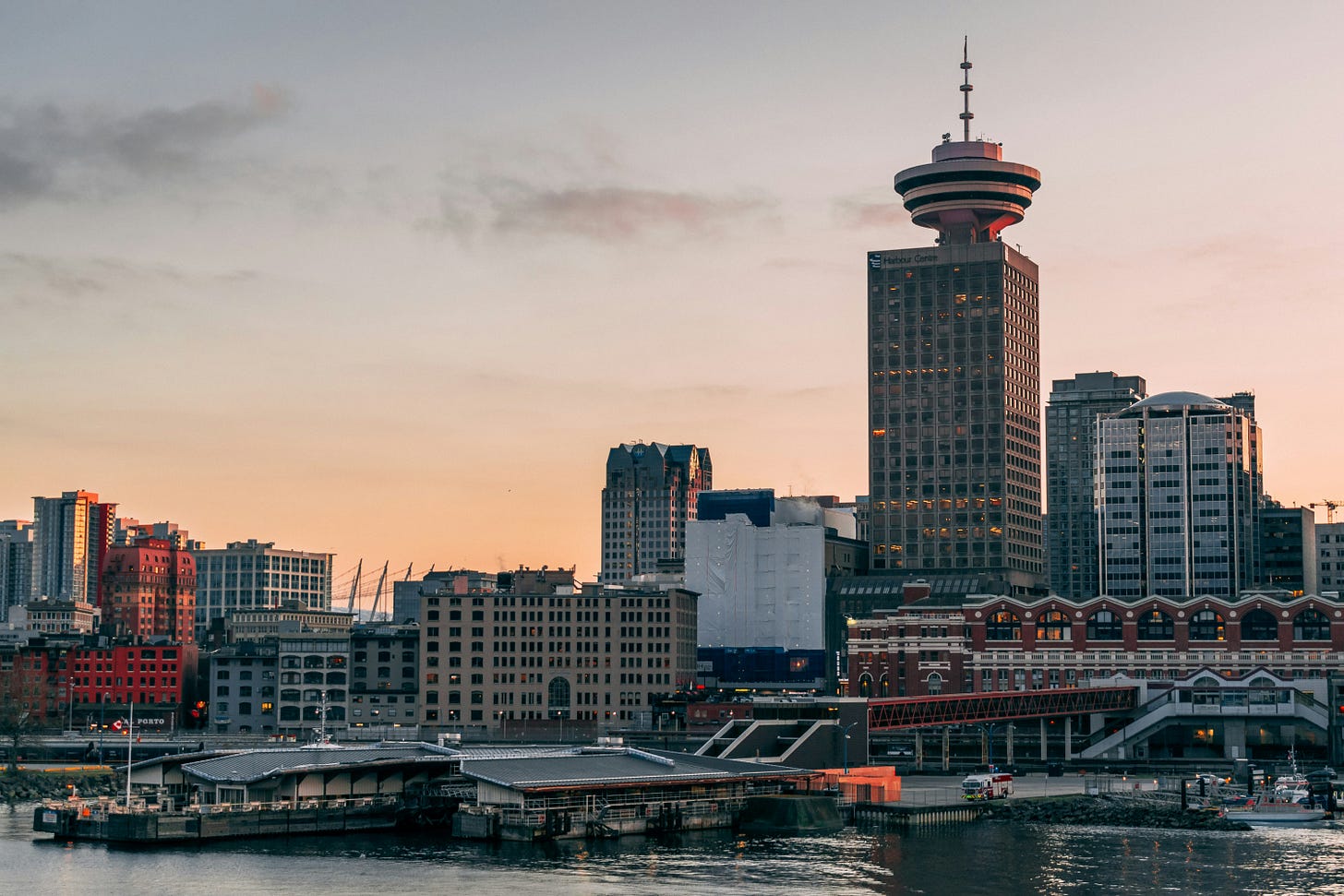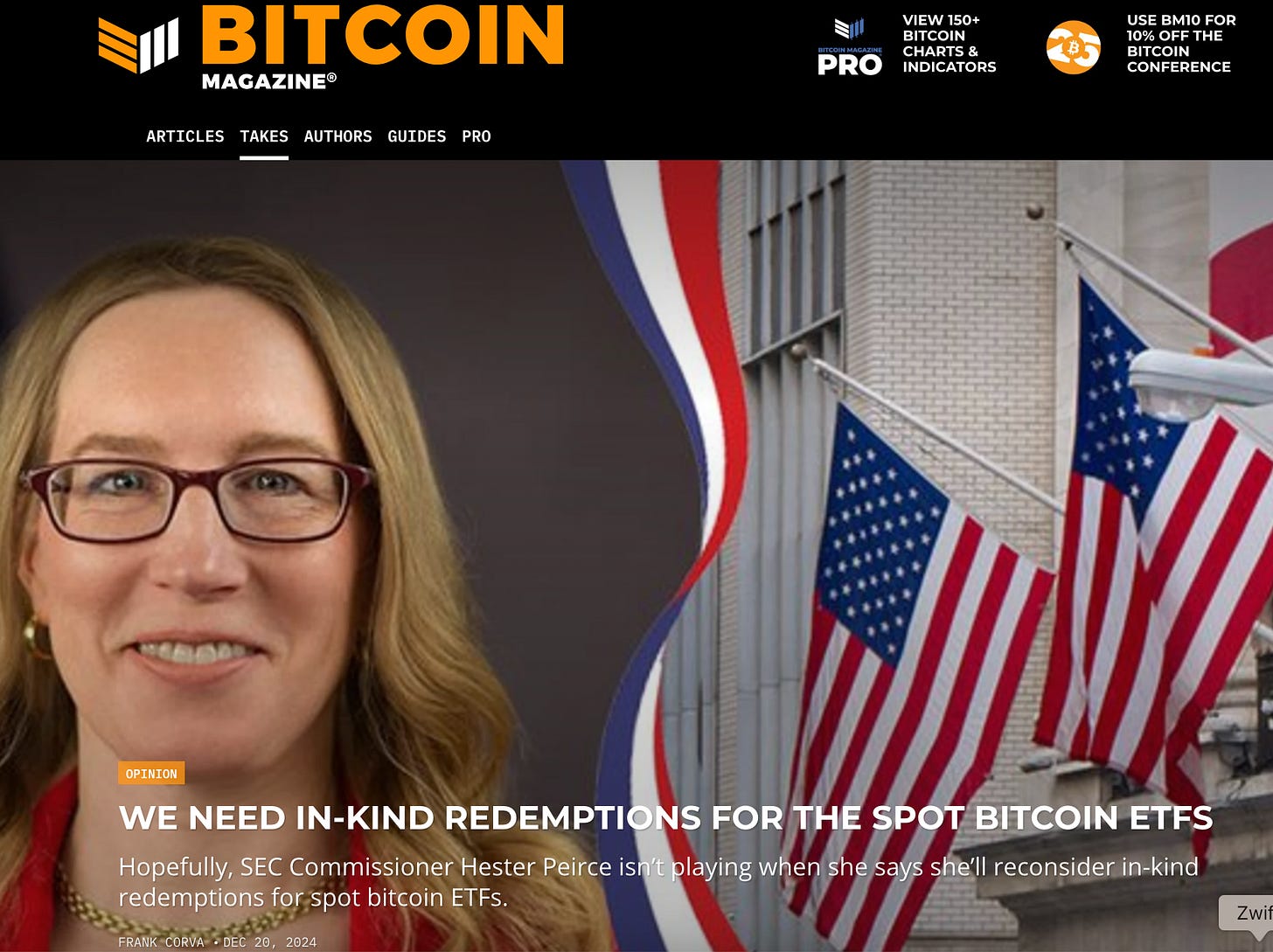My Interview With The Mayor Of Vancouver
And One Of My Favorite Stories Playing Out On Planet Earth Today

“Will Bitcoin give us hope? Absolutely.” -Ken Sim, Mayor of Vancouver
This week, I published my interview with Vancouver’s Mayor, Ken Sim.
Sim, who deeply believes in many of Bitcoin’s value propositions, was refreshingly candid in the interview.
After reading a number of seminal texts on Bitcoin and having multiple conversations with Jeff Booth, a friend of his, Sim, a former entrepreneur, is a reluctant politician who deeply believes that Bitcoin will help the citizens of Vancouver.
He’s also well-versed on Bitcoin can be a net positive for the environment, as opposed to a negative, which is how it’s often portrayed in the mainstream media.
The following is a quote from Sim from the piece on this matter:
“There's a lot of resistance with Bitcoin, especially as it pertains to its perceived effects on the environment. People hear this narrative that it's bad for the environment, and it's like, “Well, wait a second…”
I'm an environmentalist, and I know that if you force organizations across the planet to do stuff that they aren't incentivized to do, nothing's going to happen. Whereas if you incentivize them — if you build in a reward system — it’s amazing.
So, what do we know? Well, we flare natural gas as a by-product of oil production, and if we actually capture that and repurpose it for Bitcoin mining, it is actually good for the environment. Same with capturing methane that seeps from the ground.
Also, with alternative or green energy sources, be it wind power or solar power, where the economics often don't pan out to build these projects, you provide someone with a guaranteed customer in the form of Bitcoin miners, and the economics work and these things get built. So, it's net positive for the environment.”
I highly recommend reading the piece in full.
One Of The World’s Best Bitcoin Stories
Speaking of the benefits of Bitcoin mining, while in Kenya last week, I sat down with Janet Maingi, one of the co-founders of Gridless, a Bitcoin-mining company that operates in Kenya, Zambia and Malawi.
Maingi and her team aren’t just mining bitcoin profitably (with renewable hydroelectric power no less), they’re helping to bring electrification to some of the most remote parts of Africa, which is helping to improve the quality of life for people in these regions.
Here’s a quote from Maingi from the piece:
“About 600 million Africans have no access to electricity. That's about two-thirds of our population. The private sector has stepped in because the main grids do not reach everyone on the continent.
You'll find that bigger cities like Nairobi or Mombasa have electricity, but if you go to rural Africa, people have no access to electricity because of distribution challenges.
So, the private sector came and started setting up mini-grids. Private companies have done the best they can with these mini-grids. However, they’re very capital intensive, and so there are struggles with fundraising. And even when you actually get them set up, the consumers around your area might not be very wealthy. They're just living day-to-day. They may have to consider “Do I need electricity or do I need food?”
The companies that construct the mini-grids build power plants that use hydro energy. Let's say they want to build one that produces one megawatt of energy, but the community only ends up using 200 kilowatts. There's 800 kilowatts that they generated from the river, but for that 800 kilowatts, they get zero shillings, zero dollars, zero anything.
So, we at Gridless come in and say “That electricity that you're not able to send to anyone, is what we want.” That's what you call stranded power or wasted energy, and it’s what we want. So, we become your buyer of last resort.
We come and create an agreement to use that extra electricity, and from a revenue sharing perspective, we work together. It's a win-win situation. Our data centers use that electricity to mine bitcoin.
But then the catalyzing of electrification comes in. When we've used that electricity, it's become a source of revenue for the energy power plant. They were not making money on that electricity previously, and now they’re profiting from it.
What have we seen as the effect? One, they are able to extend their reach, to distribute electricity further. And secondly, some of them have been able to actually lower their prices. So, consumers who are within their reach but wouldn’t use the electricity because of the cost are suddenly saying, “Hey, hook me up. I can afford to pay for this now.”
Please read the piece in full to learn more about the tangible effects that access to affordable electricity has on people.
ADVERTISEMENT
If you’ve been dollar-cost averaging into bitcoin over the past year and your coins are still in the custody of an exchange, now may be a good time to take custody of them using the Trezor Safe 3-Bitcoin-only wallet.
In my humble opinion, it’s one of the best bitcoin wallets on the market for the price — $79 USD. (I’m not paid to say that.)
We May Get In-Kind Redemptions For The Spot Bitcoin ETFs
This week, I also wrote about how SEC Commissioner Hester Peirce said she’s open to reconsidering in-kind redemptions for the spot bitcoin ETFs.
For those who are unfamiliar with the term “in-kind redemptions,” it refers to being able to redeem the underlying asset from a share of an ETF you purchased.
For example, with gold ETFs in the US, you can request that the gold you’ve purchased via an ETF be shipped to your front door.
Read the piece to learn more about why in-kind redemptions are particularly important for bitcoin.
Bitcoin And African Women
The marvelous Marcel Lorraine, head of Bitcoin Dada, delivered a beautiful talk on why bitcoin is important for African women at the Africa Bitcoin Conference last week.
I highly recommend that you watch it and that you share it with anyone who thinks Bitcoin is just for white bros.
Markets
Yes, I know that when bitcoin’s price drops significantly amidst the euphoria, it sucks.
It’s fun to feel like you’re on crack — hard to deny that.
But what’ve I’ve gone and done below is offered you a snapshot of the weekly BTC chart to give you a bit more perspective on where bitcoin is at price wise.
(It’s still doing pretty well.)
If you bought into the euphoria at $108,000, don’t stress it. There were many others like you out there. I used to buy the highs, too. You can buy again now that the price is lower if you feel so inclined (not investment advice).
However, if you’re looking to better your bitcoin investing game (i.e., to time the market better), I’d recommend one very simple approach:
Buy bitcoin when no one cares about it/everyone hates it (e.g., during the FTX crash) and take some profits to pay down personal debt/make purchases or use the bitcoin itself to either/both of those things while its price is high (while your purchasing power is greater).
I know this is easier said than done, but it’s important to get better at doing difficult things.
BUT FRANK WHY DIDN’T YOU TELL ME TO BUY BITCOIN WHEN THE FTX CRASH???!!!
Because I’m not your investment adviser and nothing in this newsletter is investment advice. Please start taking responsibility for your life.
Also, I used to offer a paid version of this newsletter in which I shared exactly what I was doing (buying bitcoin and other hard assets) from 2022 into 2023. It cost about $2.50 per week to subscribe. I may offer that service again in the future. Something to keep in mind.
Thank you to everyone for reading, as always.
Talk soon.
Best,
Frank
X | LinkedIn | YouTube | Instagram | Spotify | Apple Podcasts | Fountain | Wavlake
Nostr: npub1dnzzyhmewrzkh862z7z2shwmhh5htx0rvkagepj2fkgst9ptwg3qj4x52h
Currently reading: The Satoshi Papers: Reflections on Political Economy after Bitcoin









